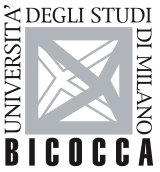 The University of Milan-Bicocca and The Smart City Association Italy (TSCAI) signed in January 2019 a Memorandum of Understanding for cooperation on the themes of the Smart City. The University of Milan will work in particular with the CRIET (Interuniversity Research Center in Territorial Economics), the primary site of scientific research and didactic coordination for the areas of study, teaching and subjects pertaining to business economic disciplines and thematic areas related to the development of businesses and the territory.
The University of Milan-Bicocca and The Smart City Association Italy (TSCAI) signed in January 2019 a Memorandum of Understanding for cooperation on the themes of the Smart City. The University of Milan will work in particular with the CRIET (Interuniversity Research Center in Territorial Economics), the primary site of scientific research and didactic coordination for the areas of study, teaching and subjects pertaining to business economic disciplines and thematic areas related to the development of businesses and the territory.
TSCAI and CRIET will collaborate with the following purposes:
- To carry out collaborative activities regarding the preparation of studies of new business models for the growth of smart city services, for the identification of operational marketing practices, organizational aspects and strategic planning in light of the changes generated by the digital transformation and conversion of cities to smart cities.
- Organize jointly workshops and conferences for the dissemination of scientific content that will result from research activities developed together on strategic issues for the implementation of the “smart city” and “digital transformation”.
- Stipulate specific agreements for research activities entrusted by TSCAI to UNIVERSITY and for technical-scientific consultancy for the identification and provision of smart services for the territorial communities entrusted by TSCAI to UNIVERSITY.
- Stipulate specific agreements for the development of training and professionalization activities aimed at operators and decision-makers in the smart city chain, carried out by UNIVERSITY on behalf of TSCAI.
- Participate jointly with regional, national and international calls for support for projects proposed by the business and / or research system, for the purpose of admitting to financing specific projects of common interest.
TSCAI is also available to collaborate with UNIVERSITY by providing competences for the teaching of courses (short and specialized degree courses, Postgraduate Schools, Research Doctorates, Specialization Courses and UNIVERSITY Masters); encouraging the development of works and thesis work at its training facilities, possibly including contributions for the financing of specific training activities in favor of the inclusion of graduates in the world of work.